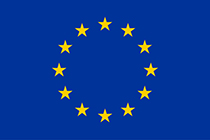Country profiles
This series of country profiles describe how countries have reacted to COVID-19 and specifically: (i) measures enacted by governments to contain the spread of the virus; (ii) policies to stabilize the functioning of agri-food systems; (iii) potential effects of policies on agri-food systems and vulnerable groups. Finally, they also assess longer-term options for agri-food system policies and investments so as to make them more resilient.
The series has been produced by the network of policy officers of the Food and nutrition security Impact, Resilience, Sustainability and Transformation (FIRST) Programme, in close collaboration with country governments, FAO representations and European Union Delegations. In some countries, FIRST has joined forces with the Global Network against Food Crises.


Systémes agroalimentaires nationaux et la covid-19 en Côte D’Ivoire
02/11/2020
La pandémie de la covid-19 a mis une pression importante sur les systèmes de santé du monde entier. Les mesures draconiennes mises en place pour contenir sa propagation créent de sérieux obstacles à l'activité économique (y compris aux systèmes agroalimentaires) et, par conséquent, aux moyens de subsistance, à la sécurité...

National agrifood systems and COVID-19 in Myanmar
02/11/2020
Since the first cases of COVID-19 infection were confirmed in late March, Myanmar has responded with a wide range of measures, including halting all visas; suspending international flights; closing international borders; cancelling the Thingyan water festival; instituting stay-at-home orders and curfews; banning public gatherings; closing pre-schools and kindergartens, private schools,...

National agrifood systems and COVID-19 in Fiji
02/11/2020
Fiji reported its first case of COVID-19 case on 20 March 2020. In June, Fiji had been declared COVID-19 free however, the first COVID-19 border case was reported on 6 July. By 22 September, a total of 32 confirmed cases and two deaths have been reported. Only two cases still...

National agrifood systems and COVID-19 in Timor-Leste
02/11/2020
A state of emergency was declared on 27 March 2020 by decree of the President of the Democratic Republic of Timor-Leste and extended until 26 June 2020. As of 27 July 2020, there had been 24 confirmed cases and no deaths from COVID-19 (WHO, 2020). Compared to many countries, Timor-Leste has...

National agrifood systems and COVID-19 in Pakistan
23/10/2020
When the first coronavirus case was reported in Pakistan in late February 2020, the provincial governments, followed by the federal government, imposed a strict nation-wide lockdown. All non-essential sectors (i.e. other than food and health) were closed. Food and medicine were only available from 9 a.m. to 5 p.m. Inter-...
.jpg?sfvrsn=23323241_0)
Sistemas agroalimentarios nacionales y COVID-19 en Guatemala
23/10/2020
La República de Guatemala fue uno de los países de América Latina más tardíamente afectados por la pandemia provocada por el coronavirus SARS-CoV-2. El primer caso positivo de la enfermedad COVID-19 se detectó el 13 de marzo de 2020 en un pasajero guatemalteco que retornaba con su familia por vía aérea...
.jpg?sfvrsn=b9361708_0)
Systèmes agricoles et alimentaires et la covid-19 au Tchad
23/10/2020
Pour limiter la propagation de l’épidémie de la covid-19, le Gouvernement du Tchad a pris plusieurs mesures restrictives. Au fil de l’amélioration de la situation sanitaire mais également des répercussions sur les conditions de vie de la population, des évolutions notables ont été constatées.

National agrifood systems and COVID-19 in Palestine
23/10/2020
Palestine is a lower-middle income economy with a GDP per capita of USD 3 072 USD in 2017 (constant prices 2015) and a population, in 2018, of 4.92 million people, 1.96 million of whom live in the Gaza Strip and 2.95 million in the West Bank (PCBS, 2019). The Palestinian...

National agrifood systems and COVID-19 in Solomon Islands
20/10/2020
This report describes: (i) policy measures enacted by the Government of Solomon Islands to contain the spread of the virus; (ii) policies and measures to stabilize the functioning of agri-food systems; (iii) potential effects of policies on agri-food systems and vulnerable groups. Finally, the profile also assesses longer-term options for...
